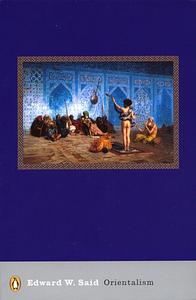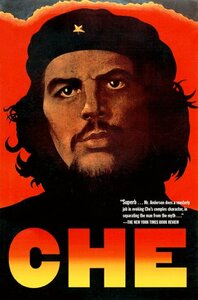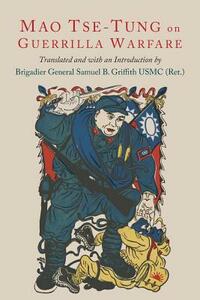Take a photo of a barcode or cover
blindmanbaldwin's Reviews (69)
Explores the development/relationship of Western academia with the East, with specific focus on the Near East/Levant and Islam. Said develops theories on "othering" through literature (fiction and non), while contrasting European and American orientalism via modern idea of social sciences. Frequent looping back to psychosexual relationship Occident has to Orient, and some light work on connecting that to historic/modern policy — but this not a policy or political theory text, rather focusing on cultural developments and their consequence.
A key lens to use in Western depictions of Islam or Islamic coded groups in fiction, particularly in post-9/11 America.
A key lens to use in Western depictions of Islam or Islamic coded groups in fiction, particularly in post-9/11 America.
Using the fall of the Soviet Union, Svetlana Boym explores nostalgia as both poison and balm. Histories rewritten through memory while exiles wander out forever separate from the new history they are not a part of anymore.
Extensive use of physical spaces — clubs and museums and parks — as catalysts for nostalgia, while looking into works of Russian authors/artists and their relationship as exile from the myth.
Limited to her own personal story as Soviet exile, but we are all no more than our own story anyway. Her categorization of types of nostalgia is a framework to analyze or consider other texts.
Extensive use of physical spaces — clubs and museums and parks — as catalysts for nostalgia, while looking into works of Russian authors/artists and their relationship as exile from the myth.
Limited to her own personal story as Soviet exile, but we are all no more than our own story anyway. Her categorization of types of nostalgia is a framework to analyze or consider other texts.
Thorough analysis of the groups that have lived in and conquered this land, looking though history (particular focus on Ottoman, British, and Israeli occupation) to explain its present moment.
"Palestine and the Palestinians: A Social and Political History" takes a class-centric approach to the history. The book focuses on the economic development — and particularly the de-development during Israeli rule — and how this impacts the culture of the area. The book keeps an unemotional tone to explaining the various sufferings of a people who have never had sovereignty, autonomy, or even self-determination. This tone creates objectivity which enhances both the authors' conclusions about the peace process doomed from the start and the reader's feelings about the events.
Many chapters here are bleak (for obvious reasons), but the one on Jerusalem/al-Quds is heartbreaking in its revealing of the way mythology is used to distort reality.
One day, may this land be free to all Jews, Christians, Muslims, and all who are there.
"Palestine and the Palestinians: A Social and Political History" takes a class-centric approach to the history. The book focuses on the economic development — and particularly the de-development during Israeli rule — and how this impacts the culture of the area. The book keeps an unemotional tone to explaining the various sufferings of a people who have never had sovereignty, autonomy, or even self-determination. This tone creates objectivity which enhances both the authors' conclusions about the peace process doomed from the start and the reader's feelings about the events.
Many chapters here are bleak (for obvious reasons), but the one on Jerusalem/al-Quds is heartbreaking in its revealing of the way mythology is used to distort reality.
One day, may this land be free to all Jews, Christians, Muslims, and all who are there.
Broad overview of the development of modern international law with some historical context that led to post-War institutions. American-centric (makes sense) with focus on case law covering all kinds of topics in the area.
Noticing in my readings of books analyzing nostalgia (all of two of them) the writers find a way in through their personal story — to analyze nostalgia, one must become nostalgic.
Casual and accessible tone used to explore interconnectedness of economic forces in American capitalism and existential anxieties of being alive that has made nostalgia big business. This book presents a counterargument for a kind of "revolutionary nostalgia" — a left-aligned nonreactionary nostalgia used for emotional appeal to, hypothetically, change the status quo. I'm not certain whether this would be an efficacious practice, or even if "nonreactionary nostalgia" exists.
The brightest spot in the book's analysis is its arguments on time being perceived nonlinearly. Human perception is the context of our existence and we most certainly do not experience time in its linear form even if that is how time passes on Earth. Nostalgia is one instance of us living in nonlinear times.
Casual and accessible tone used to explore interconnectedness of economic forces in American capitalism and existential anxieties of being alive that has made nostalgia big business. This book presents a counterargument for a kind of "revolutionary nostalgia" — a left-aligned nonreactionary nostalgia used for emotional appeal to, hypothetically, change the status quo. I'm not certain whether this would be an efficacious practice, or even if "nonreactionary nostalgia" exists.
The brightest spot in the book's analysis is its arguments on time being perceived nonlinearly. Human perception is the context of our existence and we most certainly do not experience time in its linear form even if that is how time passes on Earth. Nostalgia is one instance of us living in nonlinear times.
Interesting relic of the early 20th century. Applies Freudian psychoanalytic theory onto literature — old and new — as a lens for exploring explicit or implicit incest. Focused primarily on German culture/language (understandably). Arguments focus a lot on personal details/speculation of author's life which weakens what substance is found.
Sprawling and grand in its iterations of a central theme of succession. Easy to think this is only a problem for kings and princes (or its modern-day versions in the world of "business" empires), but it's all about fathers and sons — the legacies imparted at birth embedded in DNA that one struggles with for a life. Some sons kill the father, some fathers kill the son. All fighting for that little bit of power floating in the ether. Descendants of "Shannameh" felt over a thousand years later.
Obviously male-focused with this concept, but some of the women across the ages create an impact in their archetypal roles of "tempter" or "mother". Everything coveted: land, gold, power, flesh. Everything to be conquered.
Beautiful images and scale in its exploration of these ideas. I purposefully took a ~year to read it so I could savor its time. A little bit read as life is lived, day by day.
Obviously male-focused with this concept, but some of the women across the ages create an impact in their archetypal roles of "tempter" or "mother". Everything coveted: land, gold, power, flesh. Everything to be conquered.
Beautiful images and scale in its exploration of these ideas. I purposefully took a ~year to read it so I could savor its time. A little bit read as life is lived, day by day.
Obviously written from an American perspective, and with some journalistic flairs, but a quick read from a man with on-the-record sourcing detailing shifts in US-China relations since 2017 as well as explorations of Russia's isolation over that period with some historical context for both. The bold title may be a bit too hasty but it is clear to even the most casual observer that the end of history was anything but an end.
Sanger deserves credit for reinforcing how America's futile commitment to the modern crusades in the Middle East/Central Asia have taken resources away from the great power conflict he outlines. If one believes the United States and China are on a collision course, then our wasteful (material and reputational) policies since 9/11 must radically change.
Sanger deserves credit for reinforcing how America's futile commitment to the modern crusades in the Middle East/Central Asia have taken resources away from the great power conflict he outlines. If one believes the United States and China are on a collision course, then our wasteful (material and reputational) policies since 9/11 must radically change.
Comprehensive look into the life and death of one of the most consequential figures of the mid-20th century in the Americas. Anderson portrays Guevara as a born-again Marxist, who always had a lingering suspicion of the United States but had no clear direction for that feeling until he came upon the socialist teachings as an adult that explained the contradictions he saw in lands of such wealth yet contained all the poverty he saw as a traveler and as a doctor. Guevara becomes a bit like an evangelist, trying to spread his teachings across the land with little concern for his own flesh.
A chronicle of idyllic sacrifice repeated over and over again by a man who did not accept the bounds of restraint or realpolitik even when practiced by his co-ideologues. A man who apotheosized through this sacrifice.
A chronicle of idyllic sacrifice repeated over and over again by a man who did not accept the bounds of restraint or realpolitik even when practiced by his co-ideologues. A man who apotheosized through this sacrifice.
Foreword by the American military official is interesting in how highly he speaks of Mao and his work as compared to the Soviets. Good lens into American Cold War politics.
As for his writing itself, I am ill-equipped to give much analysis of it other than his repeated emphasis that political education has to be an equal component of a guerilla force in order to create a strong foundation to build a revolution upon is resonate. Division leads to disunion which leads to weakness.
As for his writing itself, I am ill-equipped to give much analysis of it other than his repeated emphasis that political education has to be an equal component of a guerilla force in order to create a strong foundation to build a revolution upon is resonate. Division leads to disunion which leads to weakness.









